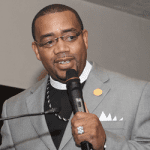Friend of the blog and Yale philosopher Keith DeRose has a fascinating interview up at the NYTimes’s The Stone. On the heels of the Archbishop of Canterbury’s admission that he sometimes doubts the existence of God, Keith argues that no one knows whether God exists.
But, more politically unpopular these days, he argues just as strongly that atheists cannot prove — indeed, don’t even know — that God doesn’t exist:
The thought that God exists does strike many atheists as bizarre. But, in contrast to the Flying Spaghetti Monster, there are all of these theists and agnostics who do not find the thought of God’s existence bizarre, and I really think they ruin our atheist friends’ hopes for easy knowledge here. The basic point is that, when there are many other apparently sensible people who disagree with you, you need a good argument to claim that you know they’re wrong.
Keith’s point is that atheists can’t simply write off belief in a God because they find such a belief bizarre. That’s not a counter-argument.
Neither is it a counter-argument to demand that theists provide conclusive evidence of a deity:
When there’s a genuine dispute, a lack of evidence on the other side does not give you knowledge if you don’t have evidence for your claim.
Which leads to Keith’s most startling claim:
My suggestion is that neither theists nor atheists know whether God exists. And here I don’t just mean that they don’t know for certain, but that they don’t know at all.
In other words, certainty in their position is philosophically implausible for both camps. People can reasonably believe in God or disbelieve in God, but they cannot reasonably claim to know that there is a God or is not a God. We’re all agnostics.
But Keith cautions that agnosticism should not lead to apathy. It’s important for human beings to take stands on issues of meaning — to dialogue and debate them, to argue over them, even to change our minds. That’s good news for a theology blog. But it’s also a challenge for those of us (like me) who have more and more friends who are Nones. I know a lot of people who’ve drifted away from the church, some to atheism, but many to apathy. They’re not thinking about God regularly, for their ideas of God have been sullied by their disaffection with the church.
I’ll admit that I’m reluctant to bring up theological matters when I’m having a beer with one of these friends, or over a night of poker. I don’t want to impose, I don’t want anyone to feel uncomfortable. Inevitably, they ask about my latest book, but I quickly try to shift the conversation away from the intricacies of atonement theory, back to something less awkward.
Surprisingly, my friends often want to hear more. They press, interested in the ideas of God’s culpability in Jesus’ death, even if they have their own doubts about Jesus and God. What I’m learning is that many people in my racial, socio-economic cohort, though they’ve forsaken the church, are still desirous of having conversation about God. Even, as Keith suggests, taking positions on God and God-related issues.
It’s a lesson to me — maybe to all of us — that regardless of people’s involvement in communities of faith, we should regularly be catalyzing conversations about God and meaning with those we hold dear.















